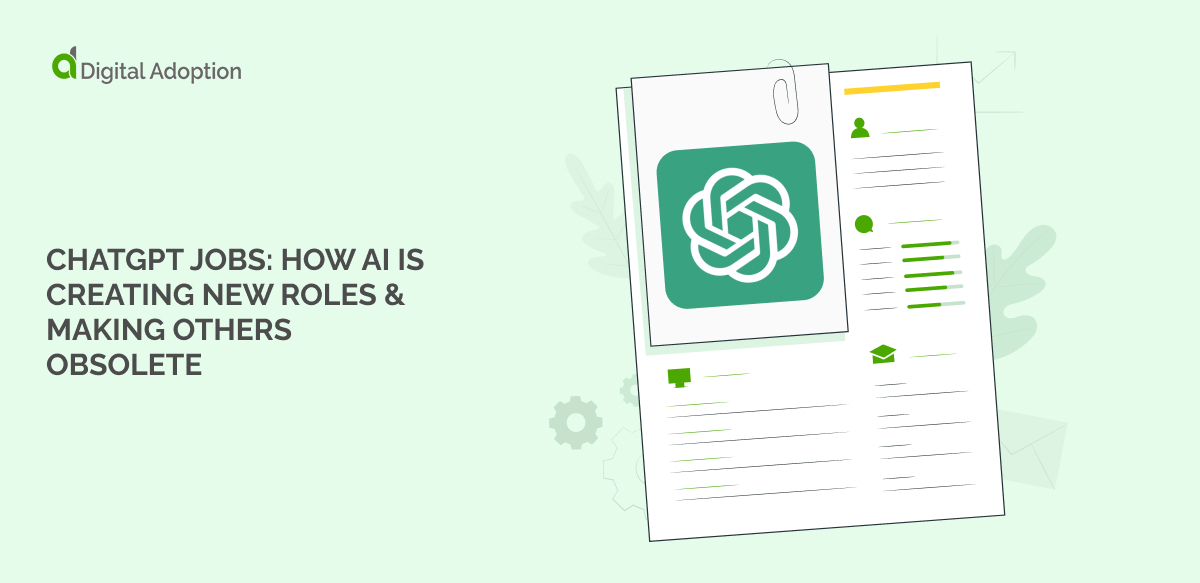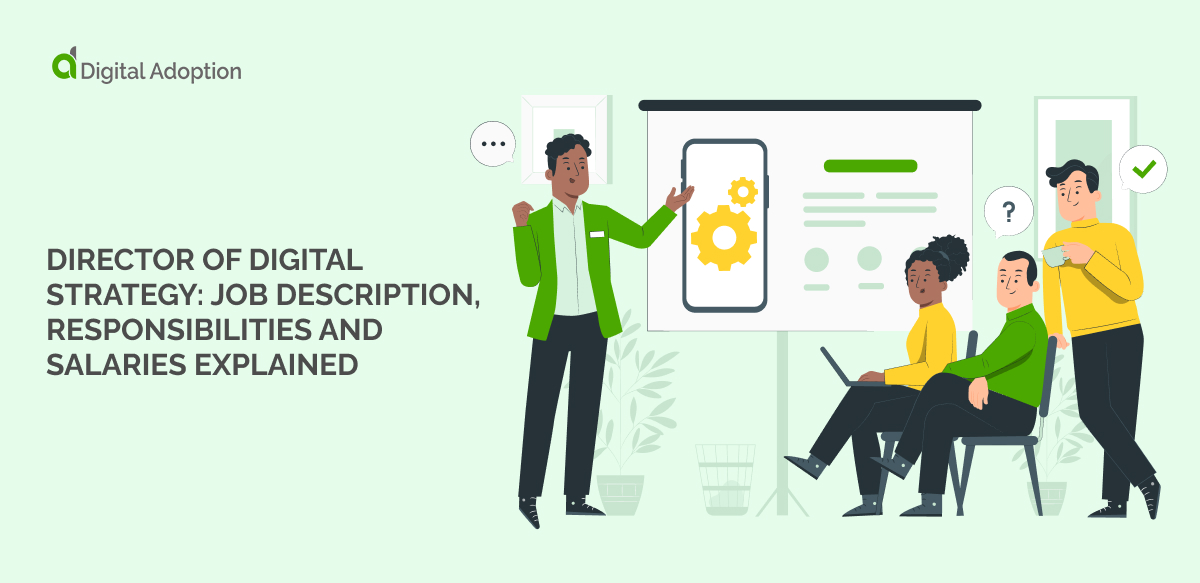How important is organizational change adoption? If it’s not done well, it could cost the company its future.
Organizational change adoption is the way a company internally changes its training, processes, technologies, or culture. Something that happens pretty often, right?
As we’ve said before, you’d think that by now organizations would have gotten good at implementing change (since it happens all the time). But no — 70% of change efforts fail.
In this article, we’re going to share some tips on how to make organizational change adoption successful.
5 tips for successful organizational change adoption
1. Use Digital Adoption Solutions to drive digital transformation
Digital Adoption Solutions (DAS) are the backbone of digital organizational changes. They help to streamline, accelerate and manage digital adoption, so when an organization is transitioning to a new digital system its success is ensured.
DAS will increase employee productivity, improve the customer experience, and increase technology ROI. Once employees realize the role DAS can play in digital transformation, they will feel more relaxed about and open to it.
The usual barriers of training employees to use new digital tools will be eliminated, since the DAS provides in-app guidance in real time. Employees will confidently self-serve and adopt a new digitally-forward approach in no time at all.
Implementing a DAS like WalkMe allows the organization to move forward with any type of digital transformation. This is a critical step in helping businesses to implement organizational change adoption successfully in today’s digital age.
2. Communicate from the top down (and bottom up)
Communication is often overlooked in the organizational change process. But companies must understand that communication from the CEO — who effectively becomes the change leader — is optimal for any change to take hold within an organization.
Change will not just naturally take place without effective communication. Even if the company puts new systems or processes in place, organizational change adoption won’t take place unless the plans are communicated in a methodical and engaging manner.
But effective change communication should never be one-way. The CEO and upper management must receive feedback from every layer of the workforce to understand how the change process is progressing. Communicate, communicate and communicate all over again!
3. Don’t forget your customer base
During the process of organizational change, it’s easy to forget about the customers. But it’s super important that businesses communicate transparently with its customers about changes to the business that might impact them.
If customers are required to interface with new technologies or tools, they’re going to need training. Similarly, if customer-facing processes are changing, there’s going to be a period of transition and teething problems may be encountered.
As with employees, it’s essential to make customers feel comfortable with the change and familiar with the new processes and/or tools as quickly as possible. Again, Digital Adoption Solutions are invaluable for this.
4. Overcome resistance to change
This is one of the biggest obstacles for organizational change adoption. The problem is very often right in the company’s own backyard.
Employees resist change because they are afraid their efficiency and performance will go down because they do not know the new systems. They are afraid they will fail and look incompetent, which may put their jobs at a perceived risk.
Human nature likes the status quo. If it ain’t broke, don’t fix it, right? This is why it’s important to communicate to employees and customers exactly how the change is going to improve things. What were the problems with the old system? What will be the benefits of the new system?
This is why good communication is so mission-critical to organizational change adoption. The company must set the scene that change is necessary. It must prepare employees in advance and give them time to become accustomed to the idea.
There must be ‘back and forth’ throughout the change process, so everybody understands they have a voice and it’s going to be heard. And the training must be rapid and impeccable, so there’s no inconveniences or dips in productivity.
All of these things are necessary in order for the company to stay competitive and flourish.
5. Upper management must support the changes
If upper management does not initiate and fully embrace the new vision then the change process will be doomed before it ever has a chance to get off the ground.
Upper management must personally be seen to be adopting the organizational change so that they can lead by example.
If employees sense that upper management is not interested in the new world order, they will not embrace the changes and the company will fail in the change process.
Conclusion: This article has covered 5 basic tips for successful organizational change adoption to take place. Each one is mission-critical. If any of them aren’t successful, the entire change initiative is likely to come crashing down like a house of cards.
Plan out each piece of the puzzle carefully and use a Digital Adoption Solution if your transformation has a digital component. Do this and you might well succeed.













